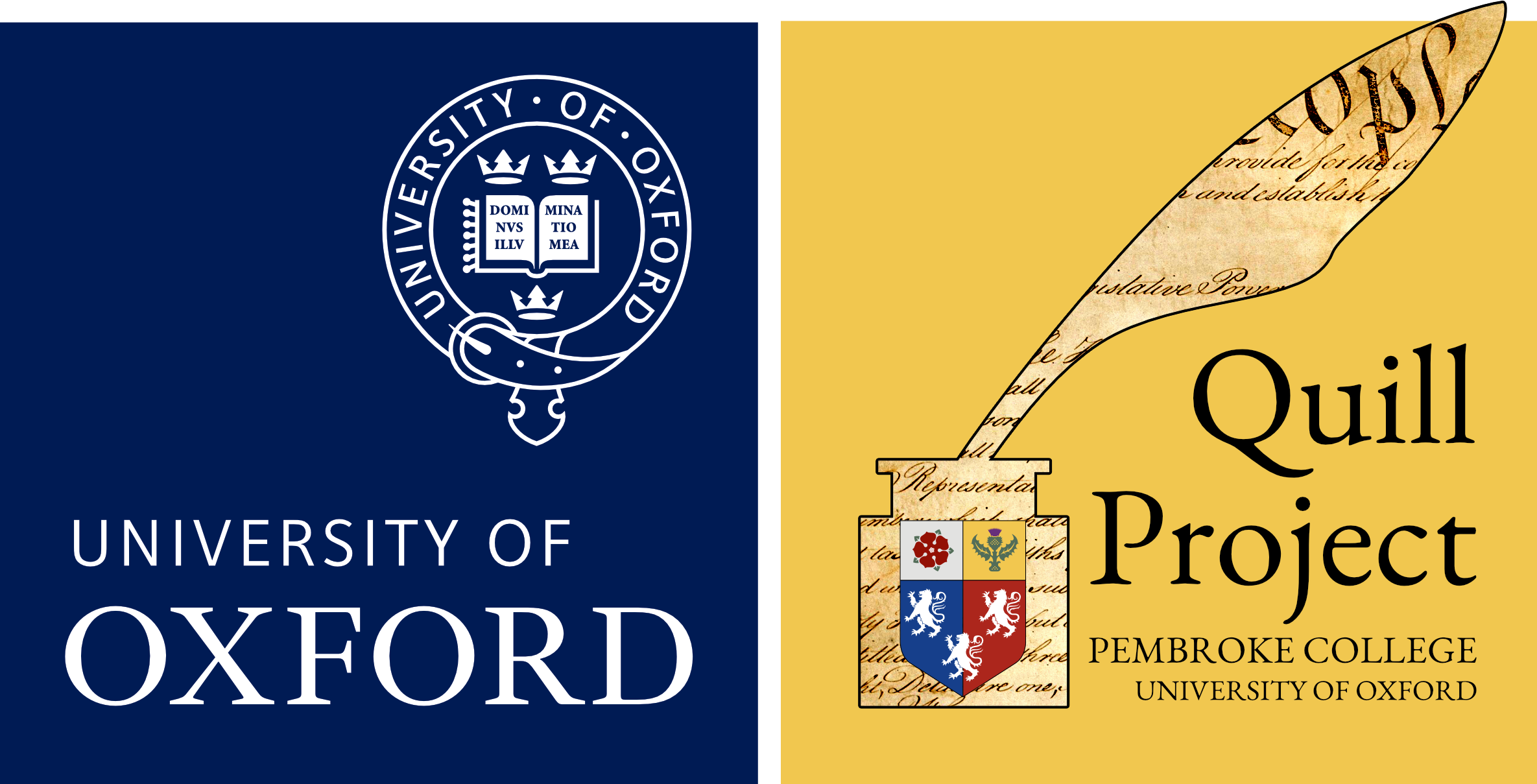Becoming a Trainee Digital Curator
Elizabeth Green
Elizabeth graduated with a First in History and English from Pembroke College in 2020. She has spent the last year as a trainee digital curator and is moving on to do an MSt in English Literature at Balliol College in October. Here she talks about her experience working with the Quill Project.
I joined the Quill Project team as a trainee digital curator in October of last year, after graduating from a History and English degree at Pembroke in the summer. Before starting at Quill I had quite a hazy idea of what the digital humanities involved, so this year has been a really illuminating and exciting opportunity to gain an insight into the workings of a digital humanities project, and the production of digital editions.
Grace (fellow trainee digital curator) and I were first tasked with modelling the Oregon Constitutional Convention of 1857, in order to familiarize us with the data-entry side of the project. This involves using the records of the Convention to build up a timeline of each committee session composed of various event types, such as procedural motions relating to the management of the process of negotiation, debate events, and document amendments. The aspect I found most surprising about modelling negotiations is that there is often multiple different ways to represent a single sequence of actions in the Convention. Quill’s model is designed to be as generic as possible in order to encourage consistency within each project, ensure that the timelines are as easy to understand as possible, and allow for comparison between models of different negotiations. The process of simplification that negotiations undergo between the written records and the digital model means that representing more complex sections of the records frequently requires weighing the merits of two or more possible combinations of events, and balancing the desire for accuracy with the need for intelligibility. Grace and I have meetings with Lauren, Quill’s digital curator, throughout the week to discuss these decisions. Deliberating them has helped me to develop a sense of editorial initiative, and become more sensitive to the different needs of those who use digital editions.
The sources used to model each project are varied, usually including newspapers and private journals in addition to official minutes, and are often confusing and contradictory, which provides more interesting opportunities for the exercise of editorial and historical judgement when translating records into Quill’s model. My favourite document negotiation that I’ve worked on so far has been a new edition of the 1787 U.S. Constitutional Convention, Quill’s flagship project. Grace and I went through journals of the Convention kept by delegates such as Washington, Madison, Yates, and Hamilton, and added the relevant extracts from them to each individual event in the model, to allow for a side-by-side comparison of different perspectives on the proceedings of the Convention. It was interesting to see how differently various delegates represented the same few minutes on the Convention floor, and it underlined to me the ability of the digital humanities to facilitate close reading and qualitative analysis, in addition to the quantitative approaches that are more traditionally emphasized. On the (frequent) occasions when the accounts of the different delegates contradicted each other, evaluating which delegate’s version of events seemed the most accurate — in order to decide which record to base the model on — helped to develop the source analysis skills learnt during my degree.
One of the best aspects about the role is how varied it is, both in terms of projects (as well as Oregon and the 1787 U.S. Constitutional Convention, Grace and I have worked on the Déclaration des droits de l’homme et du citoyen, the Arizona State Constitution, the Universal Declaration of Human Rights, and the European Union Withdrawal Agreement Acts), and in terms of the types of tasks it involves, which range from classifying new materials for display on the platform, to proofreading negotiations modelled by collaborators at other institutions. Coming back to college to work at Quill has been such an informative and enjoyable experience, working in a lovely team, and I would really encourage anyone who is interested in the role to apply.
More information about applying for the role can be found at https://www.pmb.ox.ac.uk/vacancy/trainee-digital-curator-quill-project-0.

